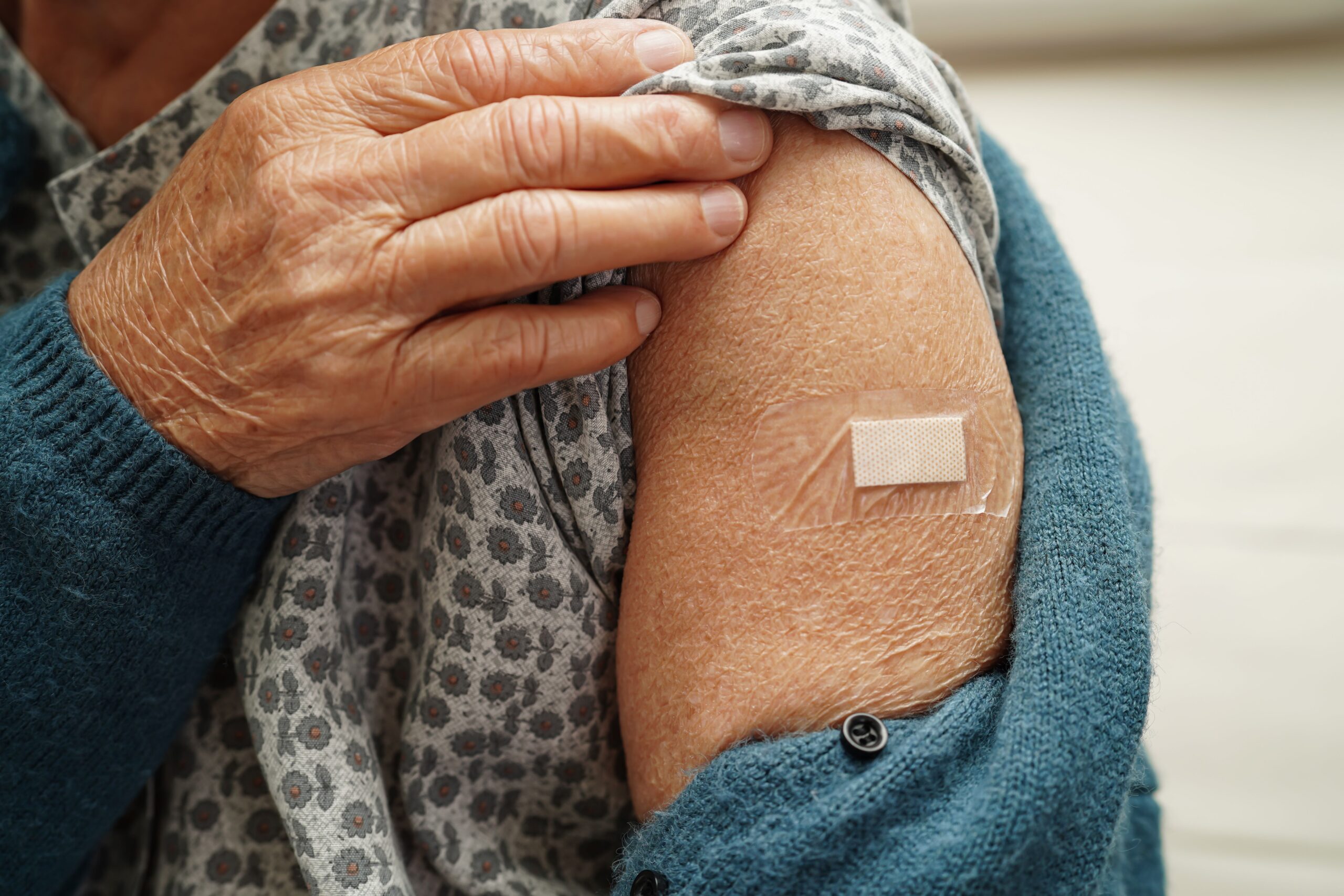Pneumococcal vaccination for older adults in care homes could help to prevent more cases and deaths, requiring only 20% more doses than the current 23-valent pneumococcal polysaccharide vaccine (PPV23) program for adults aged 56 years. However, investigators noted that 20-valent pneumococcal conjugate vaccine (PCV20) would have a greater impact against invasive disease and death than PPV23.1
Older adults are more likely to have chronic diseases, such as lung disease or heart disease, which makes them more susceptible to invasive pneumococcal disease. | Image Credit: manassanant – stock.adobe.com
“The increased risk of pneumococcal infections in care homes is driven by the advanced age and increased prevalence of frailty and comorbidity in the residents,” the study authors said.1 “The risk of widespread transmission and outbreaks of infectious diseases is also higher in care home settings than in the general population, and outbreaks of respiratory viral infections can increase the risk of secondary bacterial pneumonia, especially pneumococcal pneumonia.”
Older adults often have different symptoms when developing pneumonia, which makes it difficult to diagnose. Although a fever and cough with phlegm can happen in older adults, the symptoms are less severe than in younger people or do not occur at all. Other symptoms, such as diarrhea or worsening confusion, can be more noticeable. Furthermore, older adults are more likely to have chronic diseases, such as lung disease or heart disease, which makes them more susceptible to pneumonia. Because older patients will likely need medical attention in a hospital, prevention, such as with vaccination, is key to preventing invasive disease.2
There are 2 different classifications for pneumococcal disease: community-acquired pneumonia and hospital-acquired pneumonia. However, there are also subset classifications, including nursing home-acquired pneumonia, which is considered hospital-acquired due to the increased risk of infection and likelihood of multidrug resistance. Nursing home-acquired pneumonia occurs in approximately 1 to 2 patients for every 1000 days of nursing home residency, and patients diagnosed with pneumonia and requiring hospitalization can have mortality ranging from 13% to 41%.3
In the current study, investigators used data from the UK Health Security Agency, including laboratory-confirmed invasive pneumococcal disease (IPD) cases. Care homes were defined as residential care and nursing homes for patients 65 years and older. From 2022 to 2023, there were 2574 IPD cases in 10,629,867 individuals 65 years and older in England. Of these patients, 603,109 patients were aged 65 years. The study authors reported that PPV23 serotypes were responsible for approximately 69.4% of cases compared with 60.8% for PC20.1
The incidence for IPD from PPV23 serotypes was 16.9 per 100,000 people and PCV20 serotype IPD was 14.7 per 100,000. For both types, the incidence was higher for males. As for case fatality, overall, the rate was 25.2%, with 24.9% for PPV23 and 24.6% for PCV20. The study authors stated that when using a fatality rate of 14.6% and assuming 18% effectiveness of PPV23 against death, vaccinating all adults 65 years and older in England would prevent 31 PPV23 IPD deaths over 5 years and PCV20 would prevent 43 deaths for PCV20 IPD, according to the results. When calculating the rates for patients in care homes specifically, the study authors reported that 117 PPV23 and 317 PCV20 IPD cases would be prevented if all residents got the respective vaccination.1
“We found that vaccinating new residents has the potential to substantially reduce the burden of pneumococcal disease and deaths in care homes for older adults when compared with the general population of adults aged 65 years who are currently eligible for pneumococcal vaccination,” the study authors said.1 “PCV20 is likely to have a greater effect against IPD and death than PPV23.”
READ MORE: Pneumococcal Resource Center
Ready to impress your pharmacy colleagues with the latest drug information, industry trends, and patient care tips? Sign up today for our free Drug Topics newsletter.
